Abstract
As the population of older adults continues to rise, psychologists along with other behavioral and social scientists have shown increasing interest in this age group. Although behavior analysts have contributed to research on aging, the focus has been on applications that remedy age-related deficits, rather than a concern with aging as a developmental process. In particular, there has been little interest in the central theoretical questions that have guided gerontologists. How does behavior change with advancing years, and what are the sources of those changes? We consider the possibility that this neglect reflects the long-standing commitment of behavior analysts to variables that can be experimentally manipulated, a requirement that excludes the key variable—age itself. We review the options available to researchers and present strategies that minimize deviations from the traditional features of behavior-analytic designs. Our comments are predicated on the view that aging issues within contemporary society are far too important for behavior analysts to ignore.
Keywords: gerontology, human aging, research methods
Full text
PDF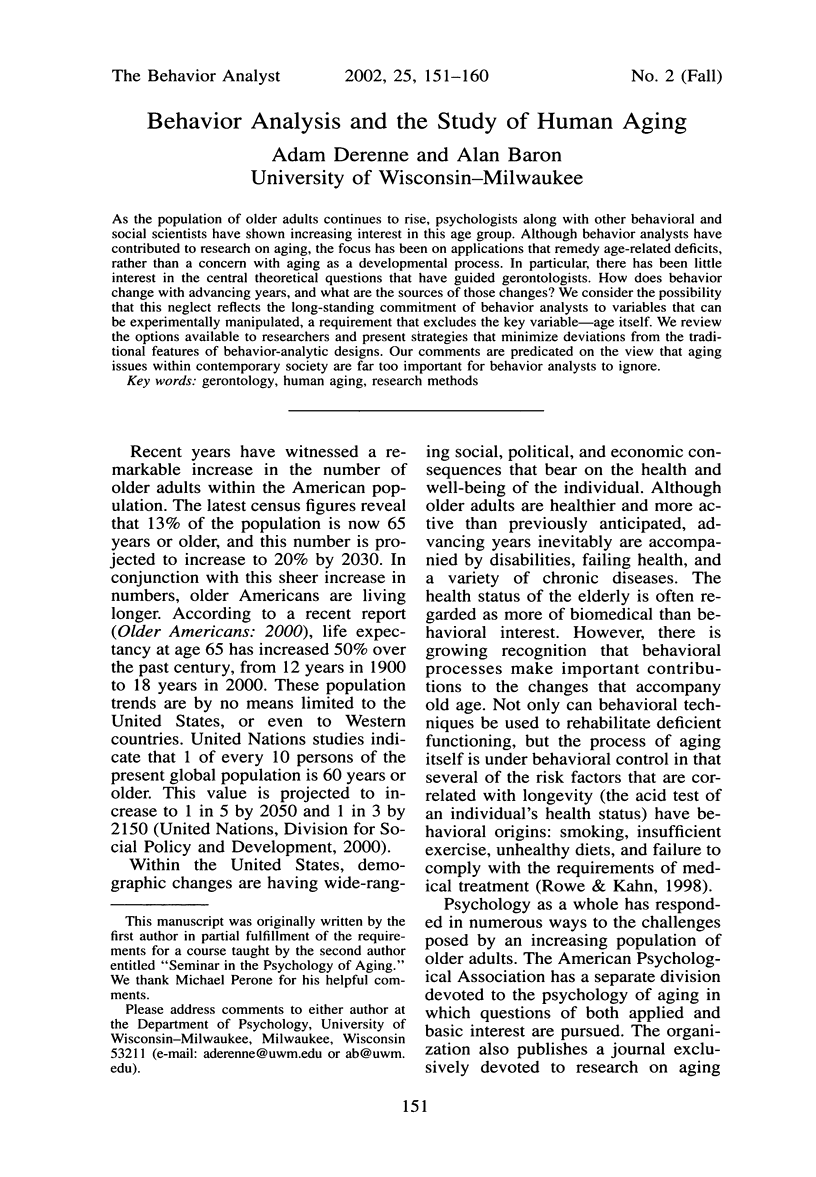
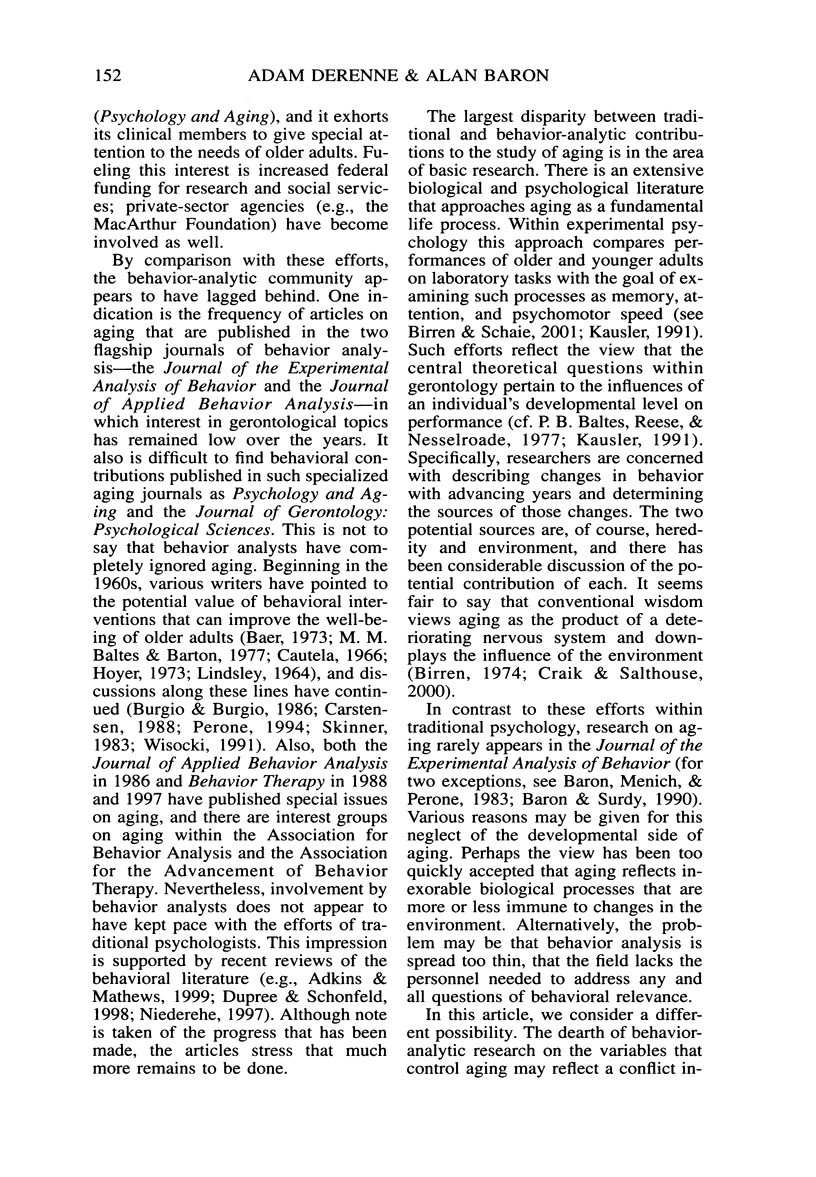
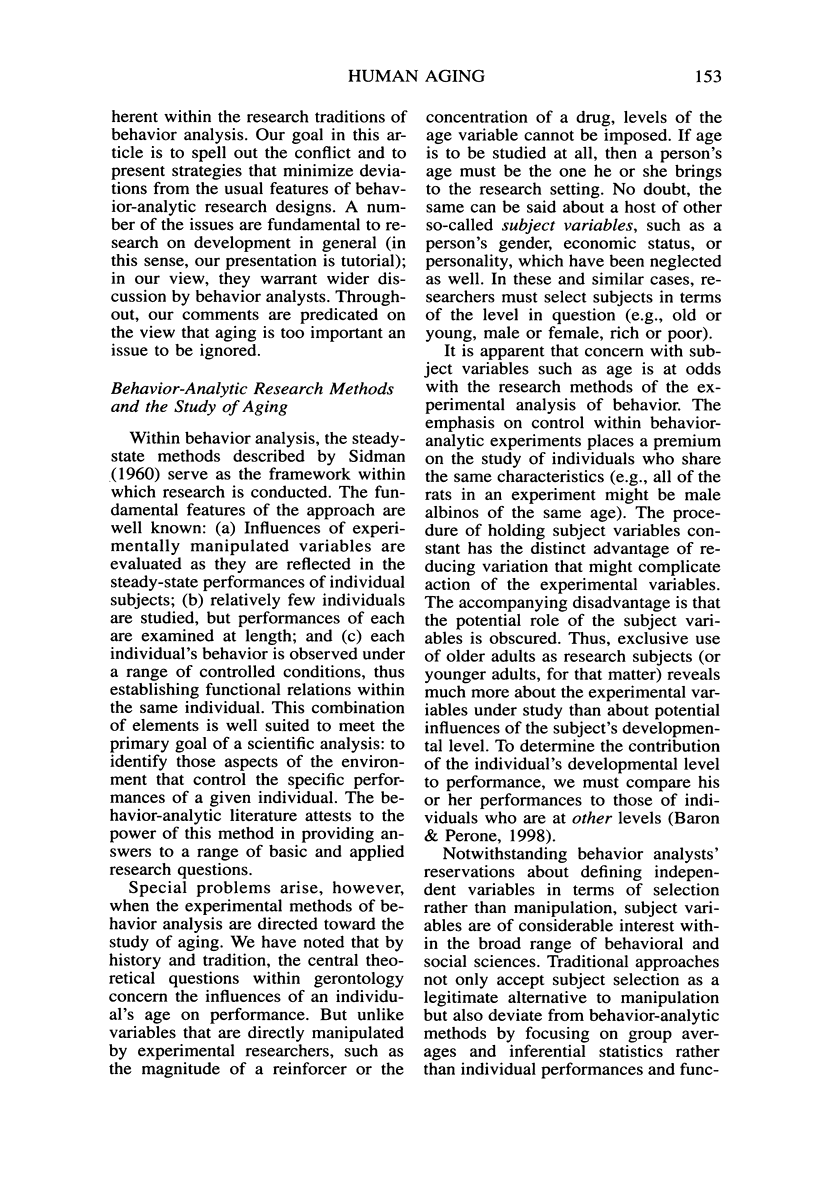
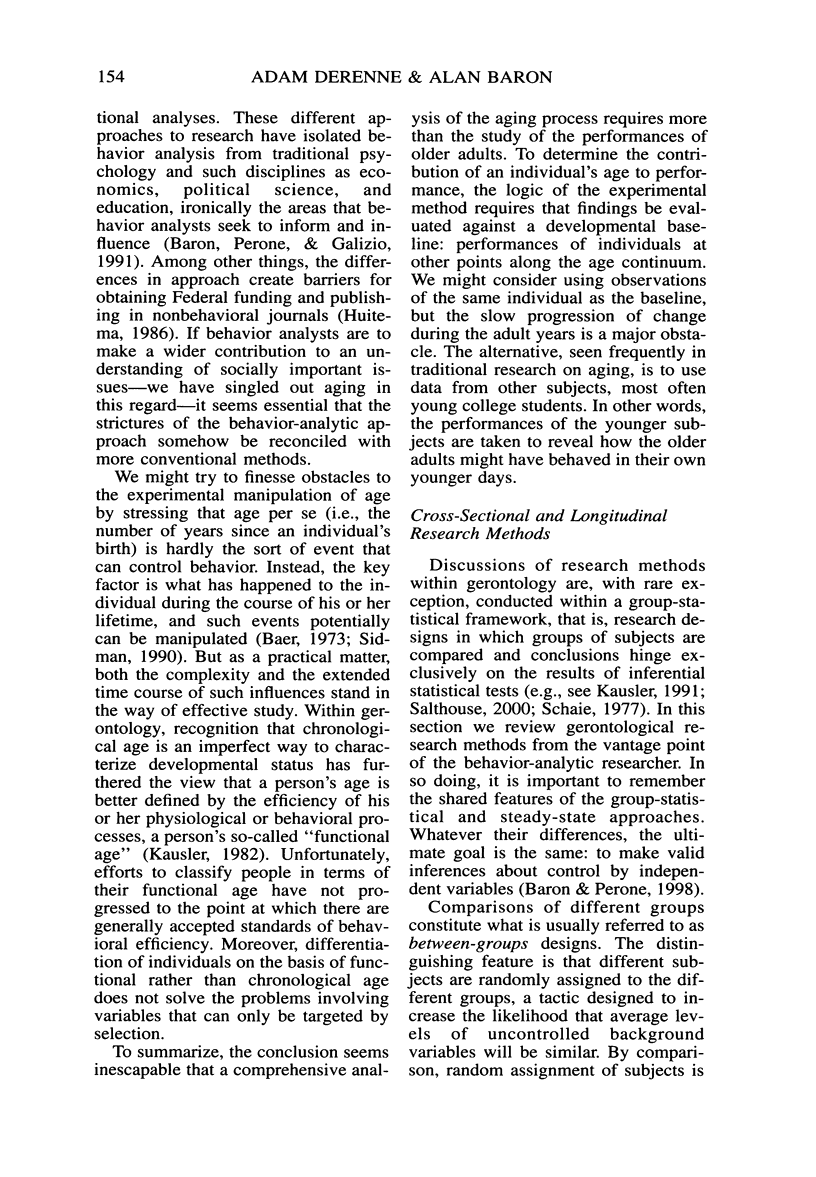
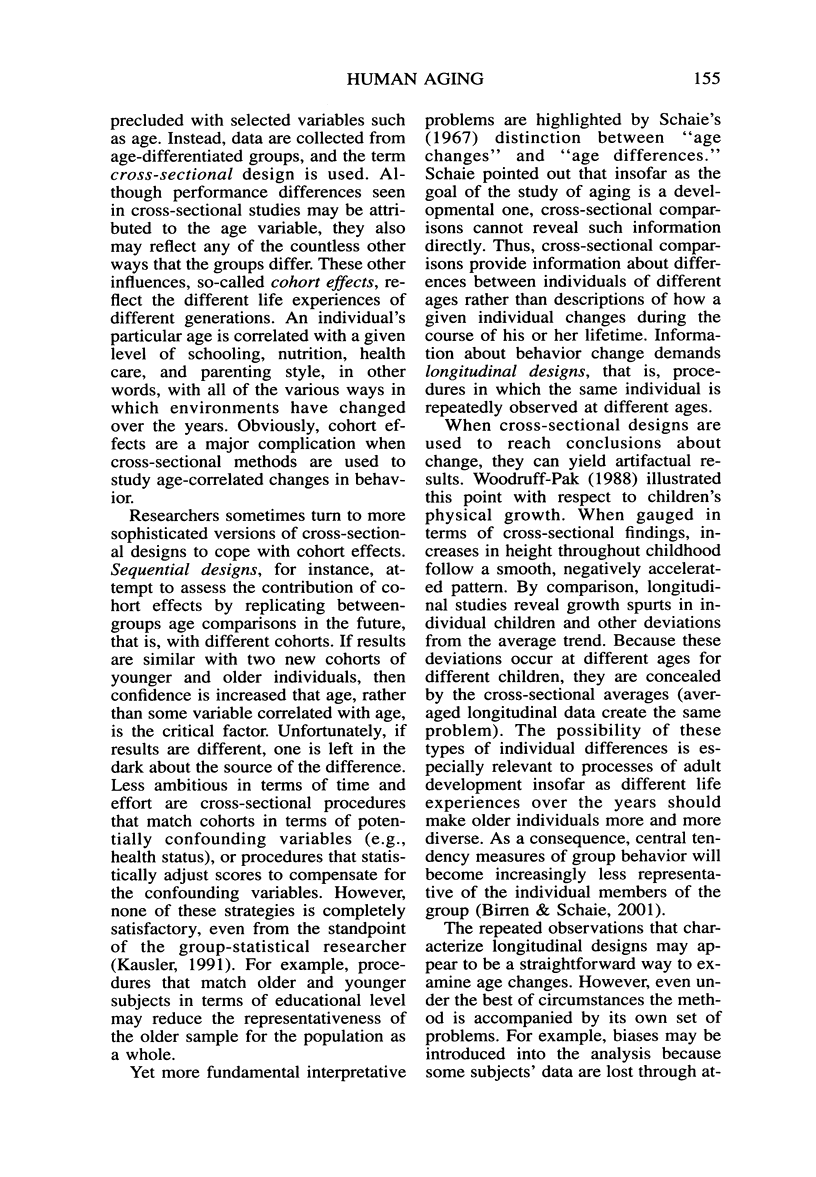
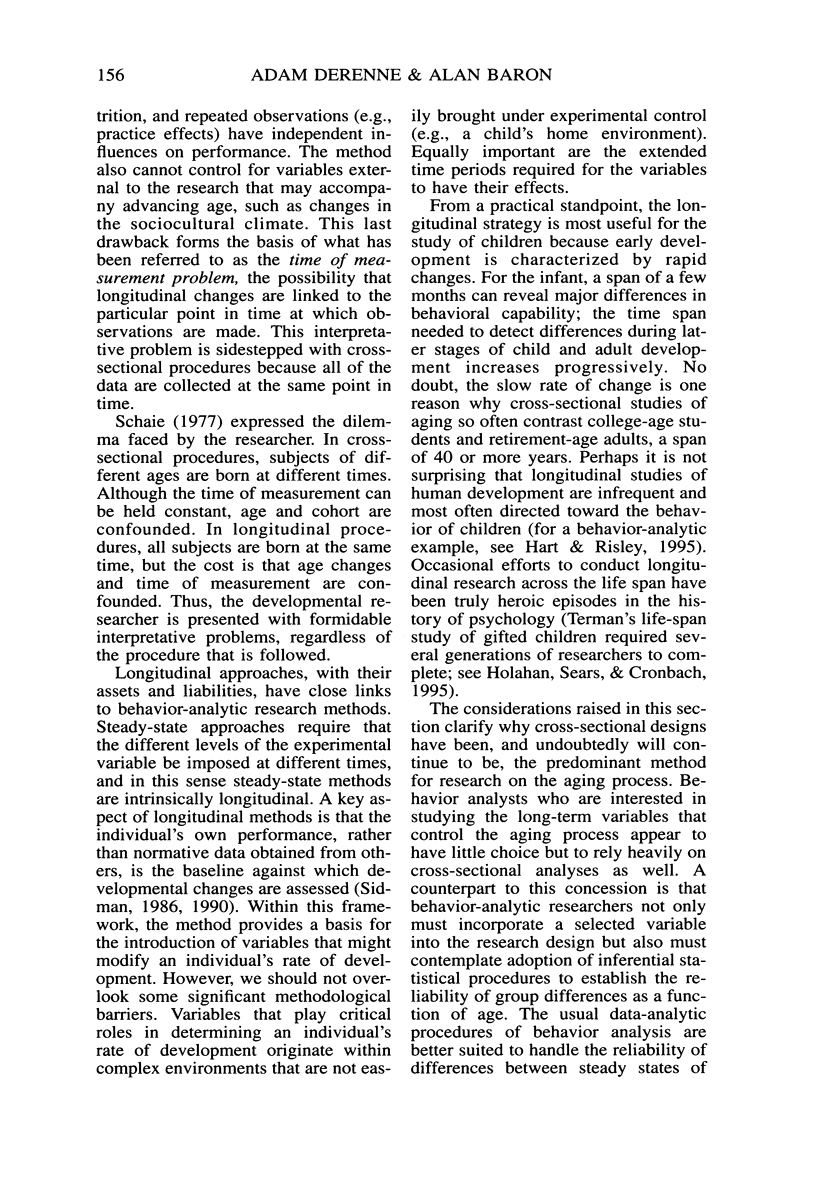
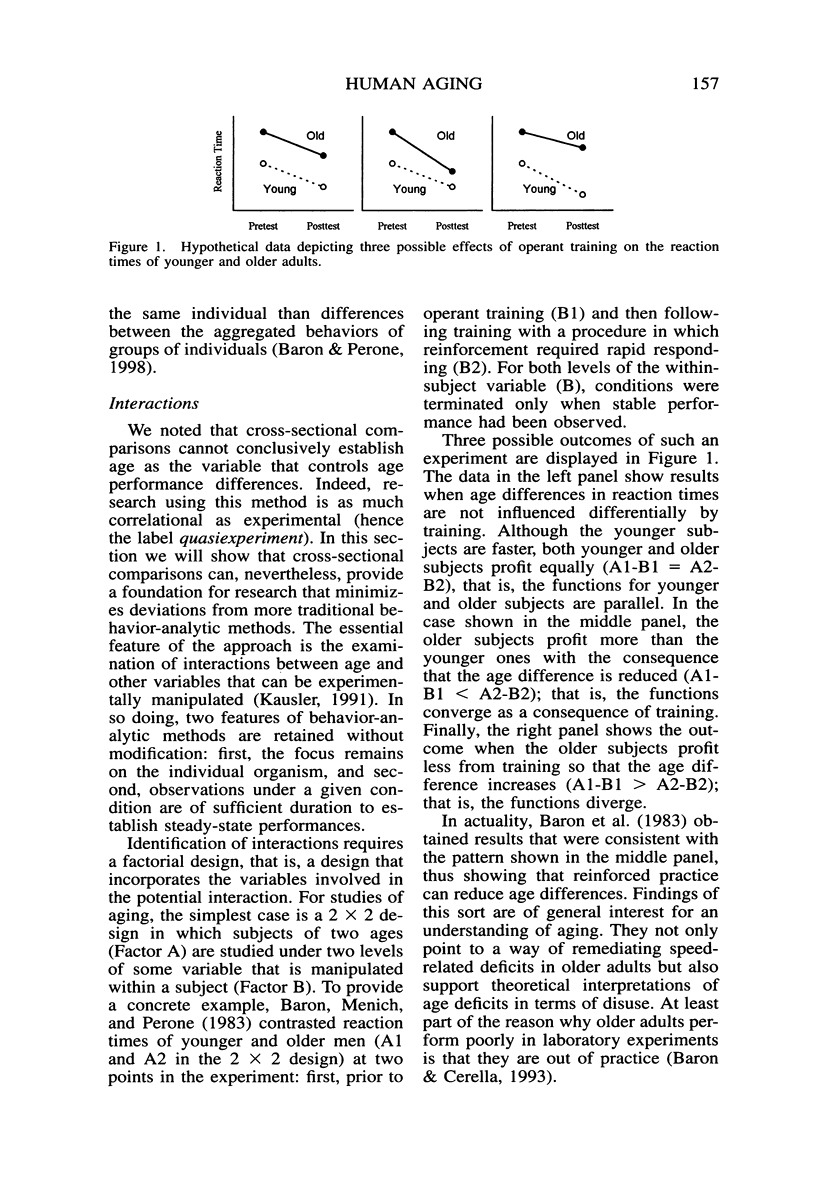
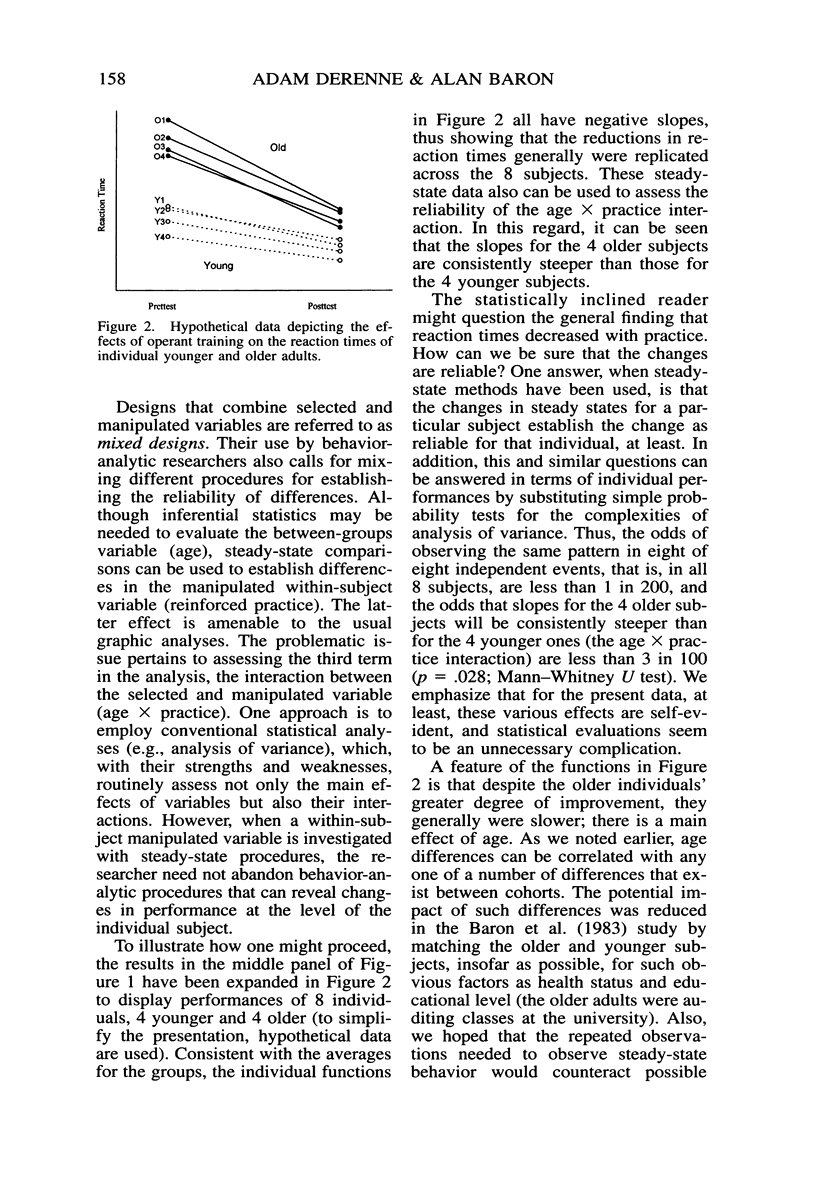
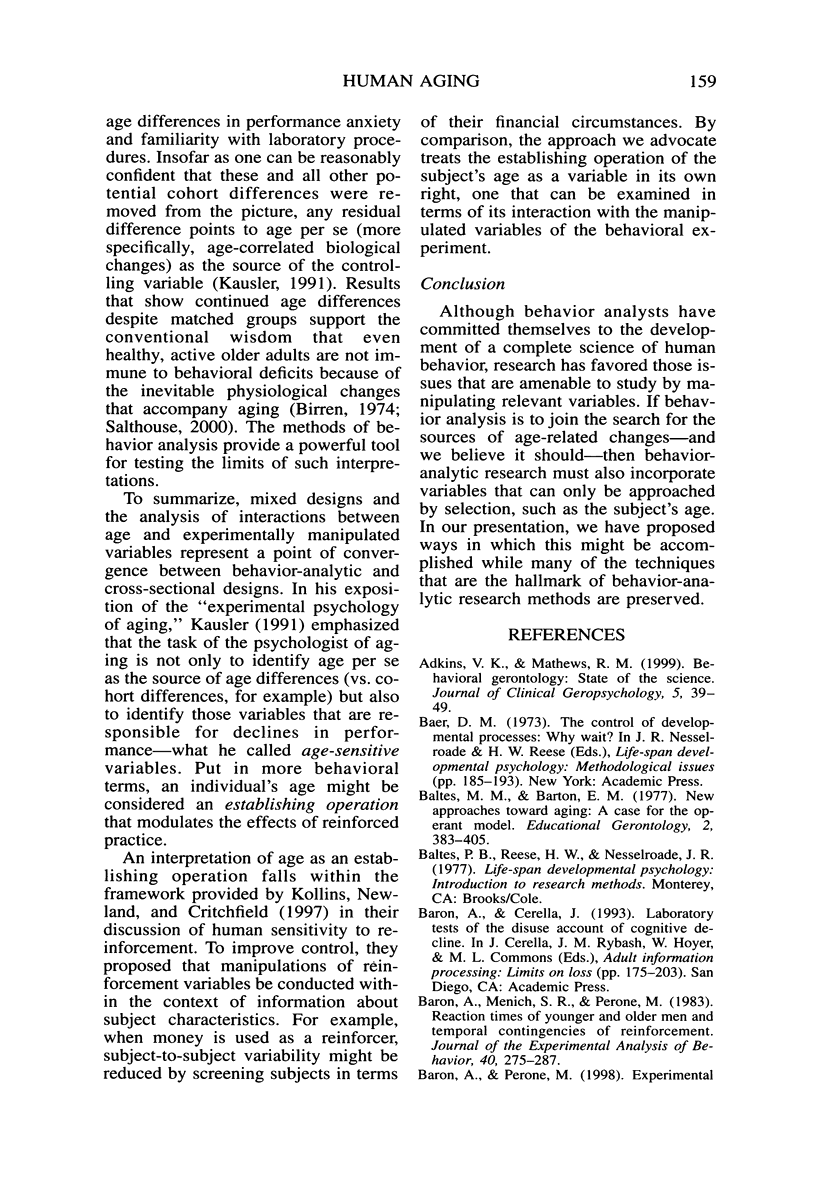
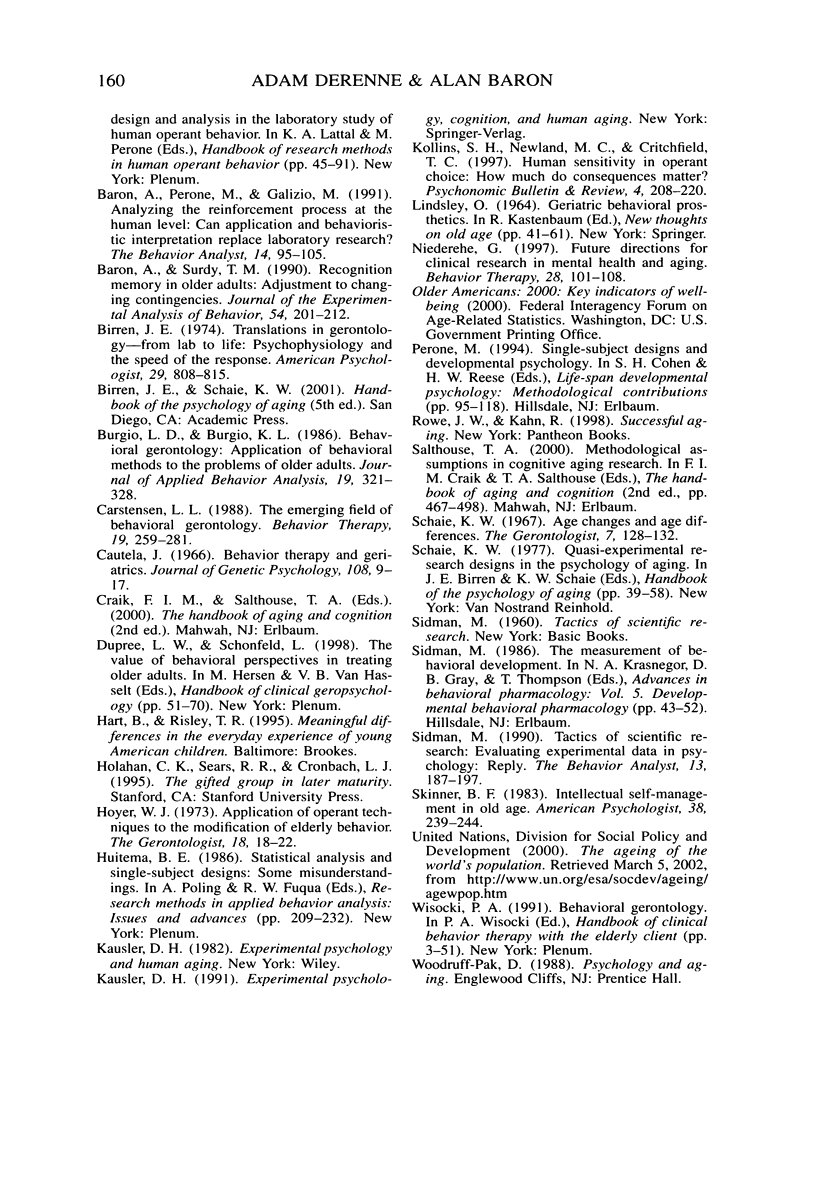
Selected References
These references are in PubMed. This may not be the complete list of references from this article.
- Baron A., Menich S. R., Perone M. Reaction times of younger and older men and temporal contingencies of reinforcement. J Exp Anal Behav. 1983 Nov;40(3):275–287. doi: 10.1901/jeab.1983.40-275. [DOI] [PMC free article] [PubMed] [Google Scholar]
- Baron A., Perone M., Galizio M. Analyzing the reinforcement process at the human level: can application and behavioristic interpretation replace laboratory research? Behav Anal. 1991 Fall;14(2):95–105. doi: 10.1007/BF03392557. [DOI] [PMC free article] [PubMed] [Google Scholar]
- Baron A., Surdy T. M. Recognition memory in older adults: adjustment to changing contingencies. J Exp Anal Behav. 1990 Nov;54(3):201–212. doi: 10.1901/jeab.1990.54-201. [DOI] [PMC free article] [PubMed] [Google Scholar]
- Birren J. E. Translations in gerontology--from lab to life. Psychophysiology and speed of response. Am Psychol. 1974 Nov;29(11):808–815. doi: 10.1037/h0037433. [DOI] [PubMed] [Google Scholar]
- Burgio L. D., Burgio K. L. Behavioral gerontology: application of behavioral methods to the problems of older adults. J Appl Behav Anal. 1986 Winter;19(4):321–328. doi: 10.1901/jaba.1986.19-321. [DOI] [PMC free article] [PubMed] [Google Scholar]
- Cautela J. Behavior therapy and geriatrics. J Genet Psychol. 1966 Mar;108(1ST):9–17. doi: 10.1080/00221325.1966.9914423. [DOI] [PubMed] [Google Scholar]
- Schaie K. W. Age changes and age differences. Gerontologist. 1967 Jun;7(2):128–132. doi: 10.1093/geront/7.2_part_1.128. [DOI] [PubMed] [Google Scholar]
- Sidman M. Tactics: In reply. Behav Anal. 1990 Fall;13(2):187–197. doi: 10.1007/BF03392538. [DOI] [PMC free article] [PubMed] [Google Scholar]
- Skinner B. F. Intellectual self-management in old age. Am Psychol. 1983 Mar;38(3):239–244. doi: 10.1037//0003-066x.38.3.239. [DOI] [PubMed] [Google Scholar]


